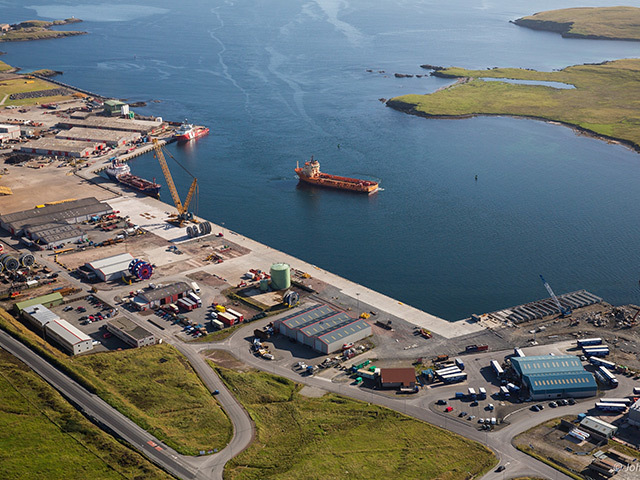
First Minister Nicola Sturgeon said yesterday that constructing a deep-water port could be key to Scotland capitalising on decommissioning work.
The Scottish Government recently launched a £5million fund to pay for upgrades of ports and harbours, increasing their capacity and removing bottlenecks.
But a lack of Scottish ports with ultra-deep-water capacity puts the country at a disadvantage compared to Norway, where a number of harbours have this capability.
Ms Sturgeon told the audience at the Oil and Gas UK conference in Aberdeen that North Sea industry had a bright future and would continue to produce oil for decades to come.
She also said oil and gas companies would play a major role in the transition to a low carbon future, by providing infrastructure, skills and expertise to help develop carbon capture and storage technology, hydrogen fuel technology and lower the cost of offshore wind farms.
But Mr Sturgeon said there was no getting away from the fact that the basin is mature and that Scotland had to seize opportunities presented by decommissioning.
Ms Sturgeon did say Scotland was already reaping the rewards of the late-life market.
Scotland-based firms had secured more than half the value of all contracts awarded for North Sea decommissioning activity so far, she said.
But having a deep-water port capable of facilitating the largest vessels could take Scotland to the next level.
Ms Sturgeon said: “Over the next 10 years we know there is likely to be more than £17billion of expenditure on decommissioning in the North Sea.
“That is an important and growing economic opportunity for many companies.
“… Just last week Repsol-Sinopec said the decommissioning of the Buchan Alpha platform would take place in Shetland and that’s just one example where the supply chain has worked together to showcase our strengths.
“We want to increase rate of success. That’s why we want to see a deep water port established here in Scotland and it’s why we launched the £5million Decommissioning Challenge Fund.
“It’s important we harness this opportunity, but it’s equally important we do not allow it to divert us from main aim of MER (maximising economic recovery).”
Recommended for you

